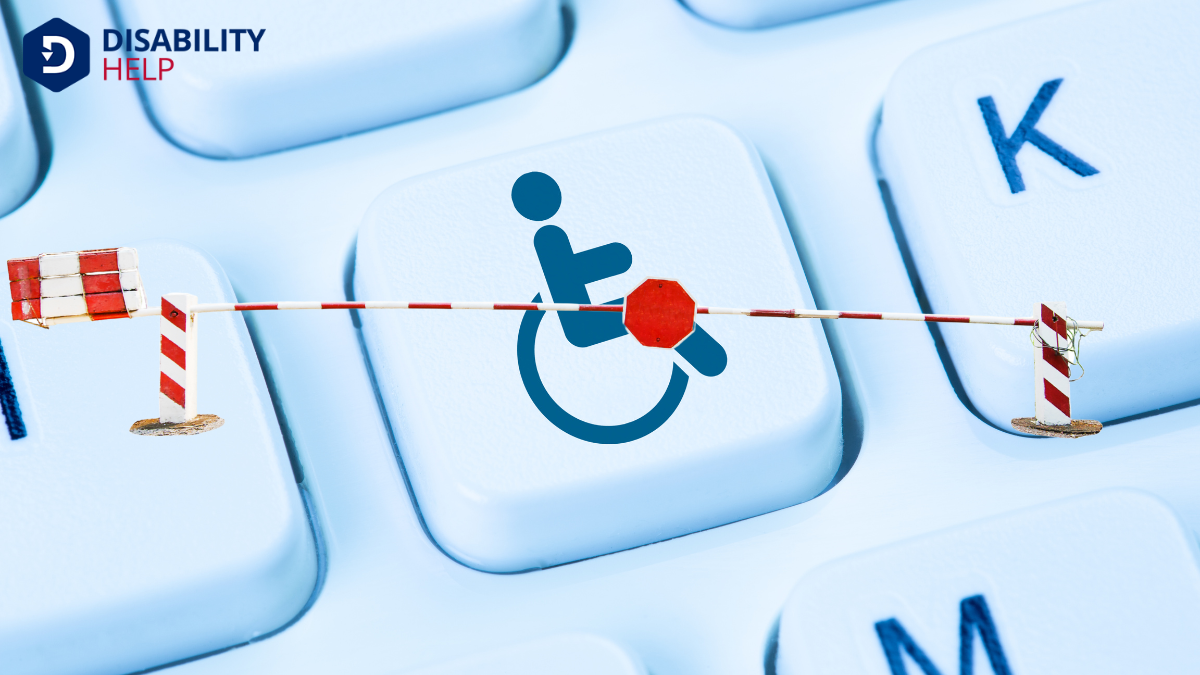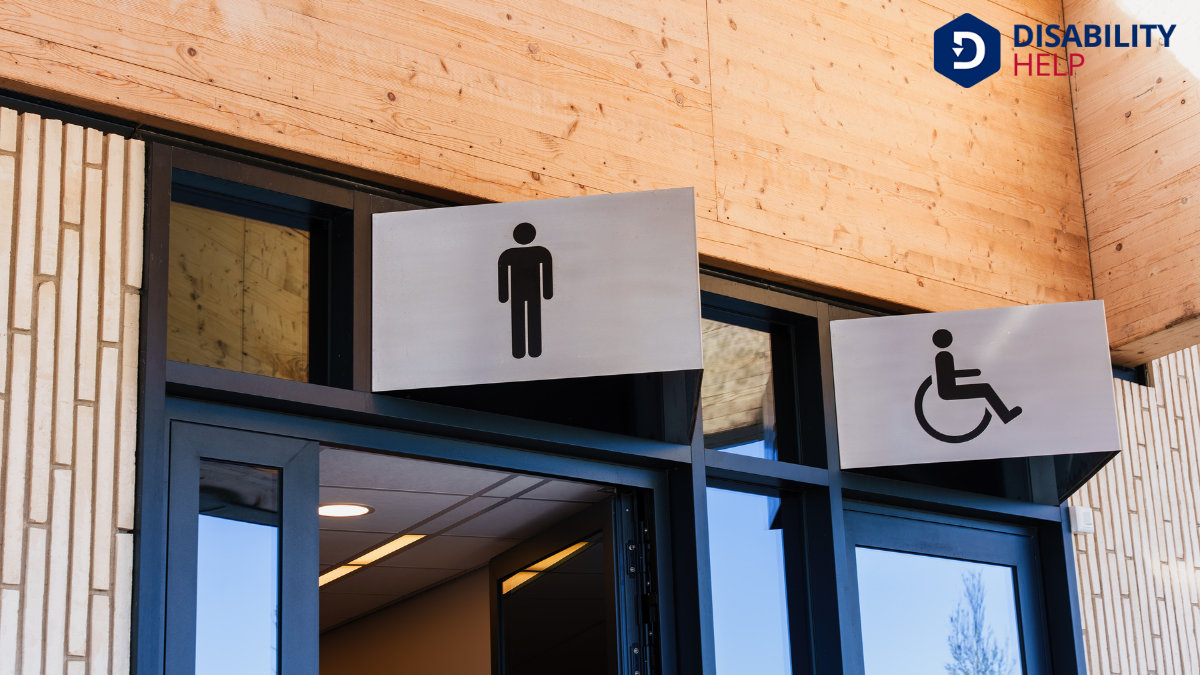When we think about the Department of Justice's role in disability rightsThe legal and human rights afforded to individuals with disabilities, often the focus of advocacy an..., it's important to recognize their active enforcement of the ADA. They tackle accessibilityThe design of products, devices, services, or environments to be usable by people with disabilities.... barriers, ensuring that public spaces are open to everyone. But that's just the beginning. The DOJ also addresses discriminatory practices and promotes equal opportunities, especially in employment. Ever wonder how they make these changes happen or how they educate the public? Let's explore the broader impact of their work.
Key Takeaways
- The Department of Justice enforces the Americans with Disabilities Act to ensure equal rights for individuals with disabilities.
- It investigates and addresses complaints regarding accessibility barriers in public and private spaces.
- The DOJ engages in litigation to uphold disability rights and promote systemic changes for compliance.
- It educates the public and organizations on disability rights and accessibility through resources and workshops.
- The DOJ collaborates with communities to foster inclusivity and prevent discrimination against people with disabilities.
Enforcing the Americans With Disabilities Act (ADA)
The Americans with Disabilities Act (ADA)A U.S. law that prohibits discrimination against individuals with disabilities in all areas of publi... stands as an essential pillar in safeguarding the rights of individuals with disabilities, and its enforcement is our shared responsibility.
We must guarantee that public facilities, workplaces, and more remain accessible to everyone. The Department of Justice (DOJ) plays a significant role in this process by investigating complaints and taking legal action against non-compliance. Through their efforts, they help reinforce the ADA's standards and promote equal accessThe principle that all individuals, including those with disabilities, should have equal opportunity....
Together, we can support the DOJ by staying informed and proactive. It's crucial we comprehend the ADA's regulations and report any violations we encounter.
This collaboration between citizens and the DOJ strengthens our community's commitment to inclusivity and justice for all. Let's continue advocating for these fundamental rights.
Addressing Accessibility Barriers

Let's focus on how we can effectively address accessibility barriers together.
By enforcing ADA compliance and investigating accessibility complaints, we guarantee that everyone has equal access to public spaces.
Promoting inclusive practices not only benefits individuals with disabilities but also enriches our entire community.
Enforcing ADA Compliance
Addressing accessibility barriers is essential to ensuring equal opportunities for all individuals, and enforcing ADA compliance plays a pivotal role in this effort. We can think of the Americans with Disabilities Act (ADA) as a blueprint for creating inclusive environments.
The Department of Justice (DOJ) is dedicated to enforcing these standards, ensuring public spaces and private entities comply with accessibility lawsLegislation that mandates the removal of barriers and ensures access for individuals with disabiliti.... By doing so, we promote equality and prevent discrimination against people with disabilities.
When we support ADA compliance, we help create a world where everyone can participate fully, whether it’s accessing buildings, transportation, or digital platforms.
The DOJ’s enforcement actions remind us that accessibility isn't just a legal obligation but a moral one. Let's work together to uphold these standards and foster inclusivity.
Investigating Accessibility Complaints
When individuals encounter barriers to accessibility, they often turn to the Department of Justice for help, and we must take these complaints seriously.
Our role involves investigating these accessibility complaints to guarantee everyone’s rights are upheld. We start by gathering detailed information from the complainant to fully understand the issue.
Our team then assesses whether the complaint aligns with the Americans with Disabilities Act (ADA) requirements. If it does, we proceed by contacting the involved parties to facilitate a resolution.
We aim to address these issues promptly and effectively, guaranteeing that everyone has equal access to public spaces and services.
Promoting Inclusive Practices
To create a truly inclusive society, we must actively promote practices that address accessibility barriers.
The Department of Justice (DOJ) plays a vital role here by ensuring that public spaces, businesses, and services are accessible to everyone, including people with disabilities.
We can work with the DOJ to advocate for changes that remove these barriers.
Combating Discriminatory Practices
While discriminatory practices against individuals with disabilities persist, our collective effort to combat these injustices is more vital than ever.
We must actively identify, challenge, and dismantle barriers that marginalize people with disabilities. The Department of Justice (DOJ) plays a significant role in this endeavor by enforcing laws like the Americans with Disabilities Act (ADA). By holding violators accountable, they guarantee that public spaces, services, and programs remain accessible to all.
We must remain vigilant and report any violations to the DOJ, supporting their mission to uphold disability rights.
Through our combined efforts, we can create a more inclusive society. Let's commit to understanding and addressing discrimination, ensuring everyone, regardless of ability, has equal access to opportunities and services.
Promoting Equal Employment Opportunities
As we consider promoting equal employment opportunities, it's essential that we enforce non-discrimination policies to guarantee fairness for all individuals.
By supporting workplace accommodationsModifications or adjustments in healthcare settings to support patients with disabilities., we can empower employees with disabilities to perform at their best.
Let's work together to create an inclusive environment where everyone has the opportunity to succeed.
Enforcing Non-Discrimination Policies
Although challenges remain, enforcing non-discrimination policies is essential for promoting equal employment opportunities. We need to understand how these policies protect individuals with disabilities from unfair treatment at work.
The Department of Justice (DOJ) plays a pivotal role in this enforcement. By investigating complaints and pursuing legal actions, the DOJ guarantees that employers comply with the Americans with Disabilities Act (ADA).
Our efforts to create inclusive workplaces depend on the DOJ's commitment to holding organizations accountable. When discrimination cases arise, the DOJ steps in to mediate or litigate, guaranteeing that justice prevails.
Understanding these processes empowers us to advocate for our rights and those of others. Together, we can build a more equitable work environment where everyone has the opportunity to thrive.
Supporting Workplace Accommodations
Building on our commitment to non-discrimination, supporting workplace accommodations is a key step in promoting equal employment opportunities.
We recognize that not everyone experiences the workplace in the same way, and accommodations can make a significant difference. By ensuring that employees with disabilities have the tools and support they need, we help create an inclusive environment where everyone can thrive.
The Department of Justice plays an essential role in this process. We provide guidance to employers on their obligations under the Americans with Disabilities Act (ADA), ensuring that reasonable accommodations are made.
These accommodations can range from modifying workspaces to offering flexible schedules. By doing so, we empower employees to perform their best, fostering a workplace culture that values diversityThe inclusion of individuals from a wide range of backgrounds, including people with disabilities. and inclusionThe practice of creating environments in which any individual or group can be and feel welcomed, res....
Ensuring Accessible Public Accommodations

When we talk about guaranteeing accessible public accommodations, we focus on the essential role they play in promoting inclusivity and equality for individuals with disabilities.
Public spaces like restaurants, hotels, and theaters must be accessible to everyone. The Department of Justice enforces the Americans with Disabilities Act (ADA), guaranteeing these places meet necessary standards.
We should all understand the importance of these measures. They guarantee:
- Physical accessibility, like ramps and wider doorways, so everyone can enter and navigate spaces comfortably.
- Effective communication, guaranteeing that information is conveyed through alternative formats like Braille or audio.
- Reasonable modifications, adapting policies or practices that could otherwise restrict access for people with disabilities.
Regulating Accessible Transportation
Accessible transportation is a cornerstone of independence and equality for individuals with disabilities.
The Department of Justice (DOJ) plays an essential role in ensuring transportation systems are accessible to everyone. We focus on enforcing the Americans with Disabilities Act (ADA), which mandates that public and private transportation providers offer accessible services.
This includes making sure buses, trains, and other transport modes are equipped for wheelchairs and that stations have ramps and elevators.
Engaging in Litigation and Legal Actions
While guaranteeing compliance with accessibility laws can be challenging, the Department of Justice doesn't hesitate to engage in litigation and legal actions to uphold disability rights.
We commit to enforcing the Americans with Disabilities Act (ADA) by holding entities accountable. Our efforts in litigation serve multiple purposes:
- Fostering Change: Legal actions often lead to systemic changes, guaranteeing future compliance and benefiting countless individuals with disabilities.
- Setting Precedents: Court decisions create benchmarks, guiding organizations on necessary adaptations and reinforcing the importance of accessibility.
- Enabling Justice: By addressing violations, we guarantee individuals aren’t left without recourse, affirming their rights and access.
Through these legal avenues, we aim to create a more inclusive society where everyone has equal opportunity and access, reflecting our dedication to justice.
Educating the Public and Institutions

To build a more inclusive society, we focus on educating both the public and institutions about disability rights and accessibility.
Understanding these rights is essential for fostering environments where everyone is valued and respected.
We provide resources, workshops, and training sessions to help people recognize and dismantle barriers facing those with disabilities.
This education empowers individuals and organizations to implement inclusive practices and policies.
Frequently Asked Questions
How Does the DOJ Collaborate With Other Federal Agencies on Disability Rights?
We collaborate closely with other federal agencies to guarantee the effective implementation of disability rights. By sharing resources, expertise, and coordinating efforts, we strengthen the enforcement of laws and policies, promoting greater accessibility and inclusion for everyone.
What Resources Does the DOJ Provide for Disability Rights Advocacy?
Let's explore the resources available for disability rights advocacyThe act of arguing in favor of, supporting, or defending the rights and interests of individuals or .... The DOJ offers guidance documents, technical assistance, and a dedicated hotline. We can use these tools to understand our rights better and empower our advocacy efforts effectively.
How Can Individuals Report Violations of Disability Rights to the DOJ?
We can report disability rights violations to the DOJ by submitting a form online or mailing a written complaint. Let’s guarantee we include details about the violation, our contact information, and any evidence we have.
What Role Does the DOJ Play in International Disability Rights Efforts?
Let's explore how the DOJ contributes internationally. They collaborate with global partners, share best practices, and promote disability rights worldwide. By doing so, we create a more inclusive society, benefiting everyone. Our collective efforts make a difference.
How Does the DOJ Support State and Local Governments in Disability Rights Enforcement?
We guarantee state and local governments have the guidance and resources they need to enforce disability rights. Our support includes training, technical assistance, and collaboration to help implement and uphold laws like the Americans with Disabilities Act.
Conclusion
In our efforts to champion disability rights, we at the Department of Justice are committed to enforcing the ADA and tackling accessibility barriers. We actively fight against discriminatory practices and promote equal employment opportunities. Ensuring accessible public accommodations and transportation is essential for us. Through litigation and legal actions, we drive systemic change. By educating the public and institutions, we empower communities to embrace inclusivity, working together for a society that values diversity and accessibility for all.






